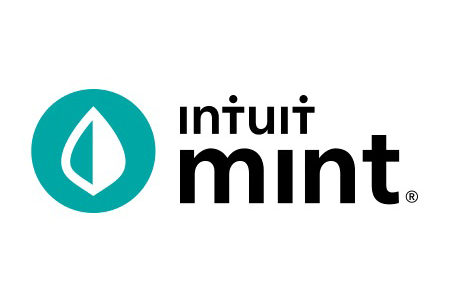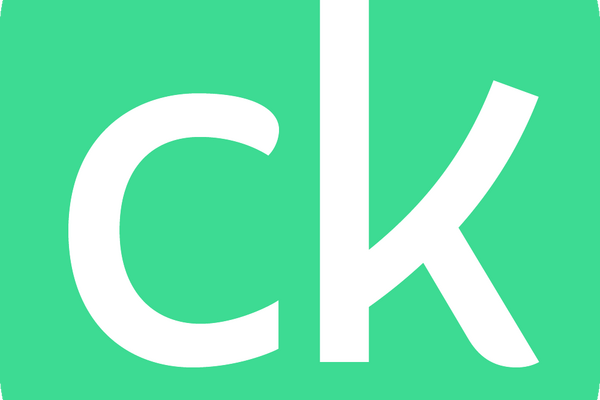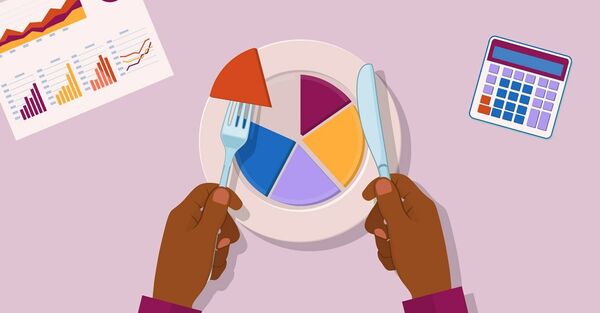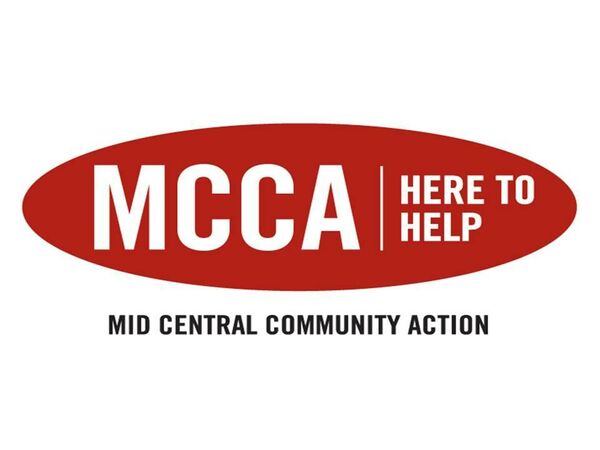Financial Resources
What Is Financial Literacy?
Managing your money is a personal skill that benefits you throughout your life – and not one that everybody learns. With money coming in and going out, with due dates and finance charges and fees attached to invoices and bills and with the overall responsibility of making the right decisions about major purchases and investments consistently – it’s daunting.
You would think that because the stakes are so high that this would be a skill that gets taught in high school (or even before), but that’s not the case. Managing your own money requires a fundamental understanding of personal credit and a willingness to embrace personal responsibility. That is, you pay your bills in a timely manner and you don’t drown yourself in debt. You accept the fact that sometimes you have to sacrifice immediate demands and desires for long-term gain.
You budget. You save. You protect your savings. When you spend, you spend wisely. When you make big purchases, you do so for things that are worthwhile.
You understand the difference between good debt and bad debt. And you constantly pay attention to your overall portfolio — earnings, savings and investments. You also understand what you don’t know, and you ask for help when you need it.
To be financially literate means having the ability to not let money – or the lack of it – get in the way of your happiness as you work hard and build an American dream complete with a long and fulfilling retirement.
How to Make a Budget – and Stick to It
For many people, the cornerstone of a healthy financial life is a strong budget.

There's no one-size-fits-all strategy for building and maintaining a budget, experts say. Instead, savvy consumers may need to try a few strategies, budgeting tools or tactics to land on the one that works best for them. If you've tried unsuccessfully to budget before, changing up your budgeting strategy may be the key to doing better in the future.
Here are answers to these common questions about creating a budget and maintaining it over the long haul.
What Is a Budget?
A budget is an organizational tool to help you identify how it is you want to spend your money.
How to Make a Budget?
Take inventory of your finances. Setting up a budget initially takes some legwork, but once you get into the rhythm, experts say, you should be able to maintain your spending plan with less effort.
To get started, track your expenses for a few months, just to get a handle on them, Ebersole says. That doesn't mean you have to write down every little expense in a notebook. For example, you can use a single credit card or debit card for a few months and use the statement as a log of all your spending.
How to Stick to a Budget?
Choose a budget system that works for you. You can find dozens of sample budgets and spending breakdowns online. The kind of budget you choose can be dictated by many factors, including your long-term goals, your age, expenses and current living situation. The key is to find a system and breakdown that works for you.
Explore budgeting apps, software and other tools. There are tons of tools for budgeting, so explore budgeting apps and tools to find what works best for your budgeting style.
Online Financial Resources
Finding the right financial resources to manage your money properly is important to financial freedom. Listed below are websites where the best financial resources are available.

Mint.Com
A free and secure online budgeting tool that consolidates financial accounts and organizes bills.

Credit Karma
Learn how to read, understand, and improve your credit score. TransUnion and Equifax credit scores are updated weekly with a free account
Finance Tools & Calculators

These handy tools are designed to help you make smart financial decisions.
Mortgage Amortization - Use this calculator to generate an amortization schedule for your current mortgage. Quickly see how much interest you will pay, and your principal balances.
Monthly Payment - Allows you to explore the outcome of changes to your loan balance, mortgage term, and interest rate on your monthly P&I payments.
Qualification Mortgage Estimator - Shows you how much income you need to buy a home, based on your income and other factors.
Biweekly Mortgage - This calculator will show you how much you will save if you make 1/2 of your mortgage payment every two weeks instead of making a full mortgage payment once a month. In effect, you will be making one extra mortgage payment per year--without hardly noticing the additional cash outflow. But, as your about to discover, you will certainly notice the increased cash flow that will occur when you pay your mortgage off way ahead of schedule!
Mortgage Refinance - This Calculator will help you to decide whether or not you should refinance your current mortgage at a lower interest rate. Not only will this calculator calculate the monthly payment and net interest savings, but it will also calculate how many months it will take to break even on the closing costs.
Other Forms
Loan Comparison - This calculator will help you to compare the total interest charges of four different loans.
Basic Car Loan - The results of this loan payment calculator are for comparison purposes only. They will be a close approximation of actual loan repayments if available at the terms entered, from a financial institution.
Credit Card Minimum Payment Interest - This calculator will show you how much interest you will end up paying if you make only the minimum required payment on your credit card bill. It will also tell you how many minimum payments you will make before your balance is paid off (up to a maximum of 600 payments).
College Student's Monthly Budget -Allows you to subtract payroll deductions and living expenses from gross monthly income.
Definition of Terms - Helpful definitions of term often used in the financial world.
Information and interactive calculators are made available to you as self-help tools for your independent use. We can not and do not guarantee their accuracy or their applicability to your circumstances. We encourage you to seek personalized advice from our qualified professionals regarding all personal finance issues. Terms and Conditions of Use. The information contained herein is believed to be reliable. However, we do not make any representations as to its accuracy or completeness. Any statements nonfactual in nature constitute only current opinions, which are subject to change.(These calculators are considered reliable, but not guaranteed.)
There’s a basic formula to win at personal finance.
Make more money than you spend. In practice it’s not that easy. In the real world our money slips through our fingers. No matter how much we make our bank account seems to have its own agenda. Watch the minimalist approach to personal finance below.

How to take charge of your personal finances
It's hard to know where to start with personal finance — saving, budgeting and everything else in between. These TED Talks provide insightful perspectives and practical advice to help you face your financial situation with honesty and compassion.
The State of Financial Wellness in America The journey to financial wellness is deeply personal.
It impacts our health, state of mind, family dynamic and our work. Explore the challenges Americans are facing today, and see where you stand on the path to financial wellness.
The first step to improving your financial wellness is knowing where you stand. Take this quiz for a quick assessment.
Financial Wellness Assessment


Financial Coaching
Learn what a healthy financial picture looks like for you and create your own definition of financial success by working with our coaches. Our coaches are experts in the foundations of personal financial health, education, and benefits support. Call Today! 217-789-0830

The Illinois State Treasurer is holding 2.9 billion dollars in unclaimed funds for Illinoisans.
The State holds these lost funds until they are claimed by either the original owner or their heirs. Property is returned at no cost with the proper identification.
Search for Unclaimed Property

Next Step Workshops
Begin your journey by attending the
Financial Opportunity Orientation.
Bloomington, IL
This workshop is held on Tuesdays in the MCCA Large Conference Room.
The orientation introduces attendees to the services of the Financial Opportunity Center and ends with each attendee making an appointment with one of our Financial/Employment Coaches to begin their own journey to success.
ALL WORKSHOPS ARE AVAILABLE BY RESERVATION ONLY.
To reserve your space, please call 309-829-0691 or email rsvp@mccainc.org.

Debt Consolidation & Loan Repayment
Homeowners and individuals in debt can get access to services from not-for-profit credit counseling agencies. Many program are offered at reduced prices or for free. Get a list of credit counseling agencies in Illinois.
Financial Literacy
A solid financial foundation can lead to a lifetime of financial success
LLCC is committed to providing students with the tools and resources needed to learn about money management and to make informed decisions regarding their financial wellness.
Our tutorials are designed to improve your financial knowledge so you are ready for whatever financial challenges life presents, whether its monthly budgeting, paying for college, navigating credit or investments. Click the link to begin financial literacy.
Federal Student Loans
Are you thinking about taking out a federal student loan to help pay for college? Check out this video to learn about your responsibilities as a borrower and what you should consider when taking out loans for college. Visit https://studentaid.gov for more information.

Do you need help managing your existing federal student loans? This video may help!

Entrance and Exit Counseling: The Financial Aid Office has vital information students need to know before taking out a student loan and additional information they need to know when it is time to repay that loan. Please visit the Entrance Counseling and Exit Counseling pages for more information.
Other Resources
FAFSA Workshops: The Financial Aid Office helps students complete their free application for student aid several times throughout the year. Check out the upcoming dates on LLCC’s Financial Aid page.
Annual Credit Report: site to check on your credit reports for free once per report per year.
ISAC Student Portal: College financial planning made easy. This website provides resources, tools and people that will help you plan for college and pay for an education.
Illinois Department of Financial & Professional Regulation – Provides a wealth of guidance on topics such as opening a credit account, buying a home, money management and investing your money.
Mymoney.gov – A government website dedicated to teaching all Americans the basics of financial education.



